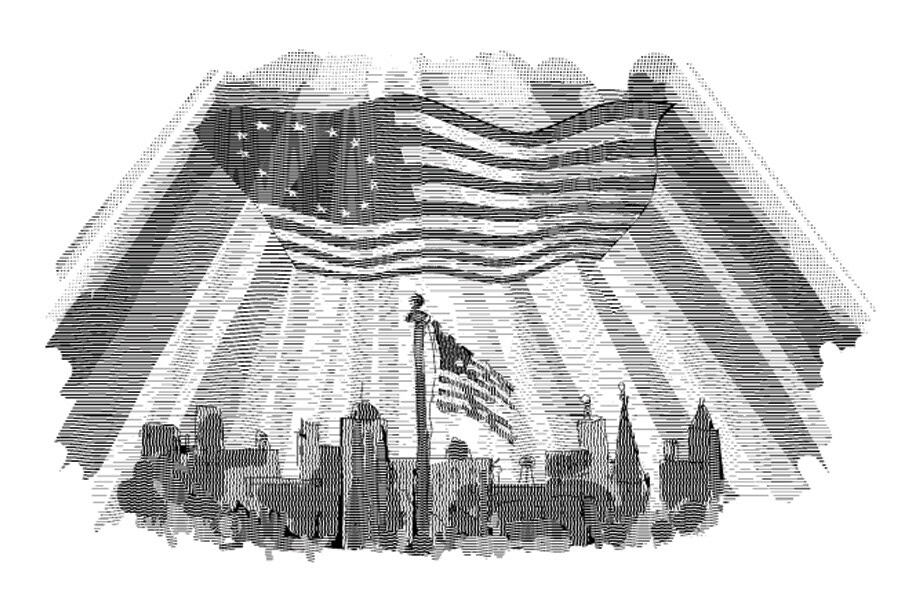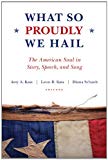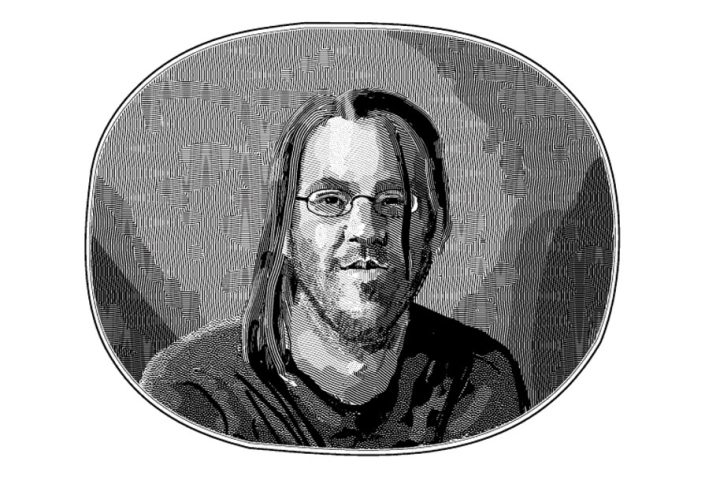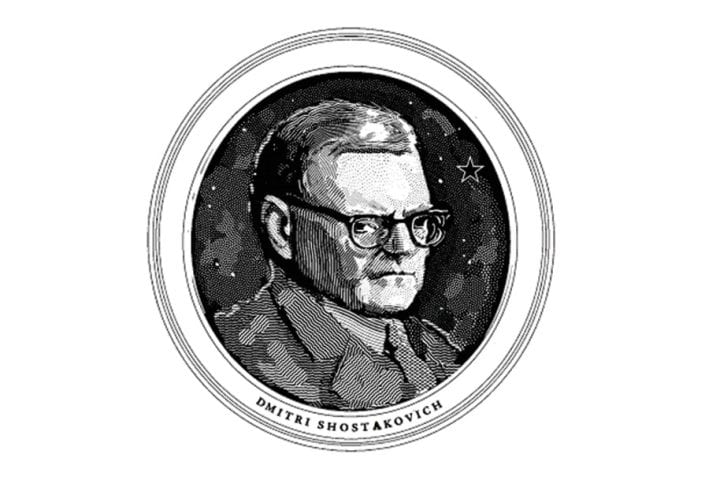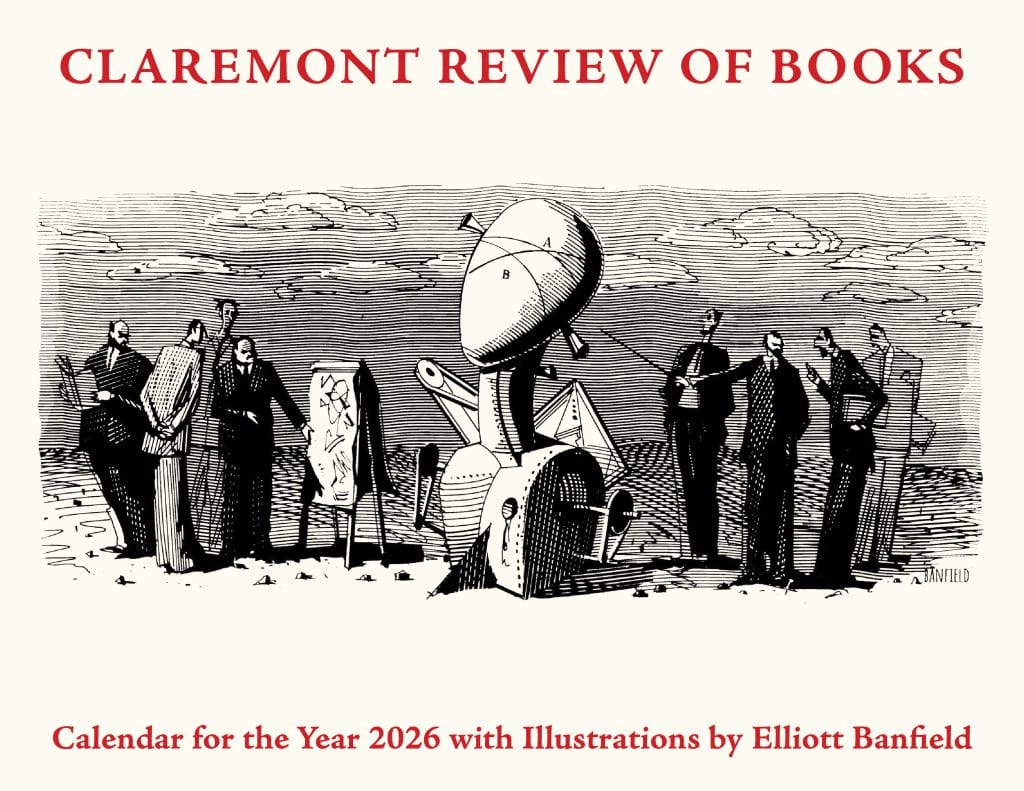Books Reviewed
A review of What So Proudly We Hail: The American Soul in Story, Speech, and Song , edited by Amy A. Kass, Leon R. Kass, and Diana Schaub
, edited by Amy A. Kass, Leon R. Kass, and Diana Schaub
Virgil was a patriot. In book VI of his Aeneid, the hero Aeneas visits his father Anchises in the underworld. Anchises shows him a whispering throng of spirits readying themselves for birth, and points out Aeneas's descendents, men like Caesar and Brutus, who will do great things for Rome. Anchises addresses them with a prophecy: Whatever glories other peoples may rise to,
you, Roman, remember, rule with all your power
the peoples of the earth—these will be your arts:
to put your stamp on the works and ways of peace,
to spare the defeated, break the proud in war."[ll. 976-984, from the translation by Robert Fagles]
This promise was the boast of Rome: to spare the conquered and subdue the proud. Does Rome live up to the promise and the boast? The Aeneid is richly ambiguous on the point.
What So Proudly We Hail offers readers an American patriotism like Virgil's Roman version: subtle, supple, critical, and real. The book is an anthology made up mostly of short stories and novellas, along with letters, essays, poems, speeches, and the Declaration of Independence. Glancing at the title, a reader who cherishes ambiguity might worry that he will encounter here a simplistic nationalism that treats American history as a march from triumph to triumph and Americans as people of unremitting rightness. If you're that reader, don't worry. The story told in this book is much more interesting than that.
The editors are Amy Kass, a senior fellow at the Hudson Institute, her husband Leon Kass, professor emeritus at the University of Chicago, and Diana Schaub, professor of political science at Loyola University Maryland. They organize stories to make specific claims about what it means to be American. The central idea of American identity gets its own section, "Individuals Free and Equal." Freedom and equality are supported by certain virtues, like courage, civility, and self-respect, each of which is discussed at length. And they are devoted to certain goals, like "Lifting the Floor" for all citizens and "Elevating the Ceiling" of achievement by the greatest—artists, athletes, and jet pilots, to name a few.
* * *
The selections pull no punches. A section entitled "Self-Command and Self-Respect" opens with an obvious choice: Benjamin Franklin's account of his catalogue of virtues, by which he attempted to train himself in useful habits. But in the same section the editors furnish an excerpt from Frederick Douglass's memoir, My Bondage and My Freedom, recounting a fistfight between Douglass and a particularly wicked overseer, Edward Covey. Franklin developed his self-respect through quiet, daily action. Douglass had to fight for it—and he only believed in it after he whipped Covey and saw his fear.
Or consider another piece in that section, "Twenty-Two Days on a Chain Gang," by the civil-rights activist Bayard Rustin. Rustin recounts the sterility and servile torpor of life on the gang, where the work was never done, the men were forbidden independent thought, and all the prisoners lived at the mercy of a cruel and whimsical captain. Rustin maintains his self-respect, and the charity with which he treats the other men causes some small changes in the prison's culture. But they are very small changes, he acknowledges, and the overwhelming feeling is of a man holding his own—barely—in a place that would crush his hope if his sentence were any longer.
A division entitled "Civility, Tolerance, and Compassion," opens with a story by the early 20th-century sportswriter Ring Lardner. A couple has moved to a new suburb and the neighbors invite them to a bridge night. The husband, a magazine editor, endures talk that he finds tedious (he finds all talk tedious), and plots his revenge. When he returns the next week—without his ill wife and with a friend's promise to introduce him to "better" folk—he eviscerates the grammar and usage, the piano-playing, and the table-manners of his hosts until they throw him out. Stephen Crane's "The Blue Hotel" tells the story of an intolerable stranger-suspicious, aggressive, and ultimately violent—who starts two fights and is killed in the second. And then there is Melville's immortal "Bartleby the Scrivener," about a New York lawyer whose clerk "would prefer not" to do anything and sits like a lump in the office. The lawyer's compassion wastes itself on Bartleby, who refuses to respond. It is a weird kind of tragedy, and the lawyer is a small man, but there is something noble about his persistence in hopeless charity.
* * *
Through these and other odd-seeming but revealing stories, Kass, Kass, and Schaub remind us how complicated and contested are the elements of American culture. Consider the book's first selection, "The Man Without a Country," a morality-tale by a Unitarian minister named Edward Everett Hale. It is the story of Philip Nolan, a lieutenant in the U.S. Army who gets swept up in Aaron Burr's dream of empire and joins Burr's plot: whether or not Burr was a traitor, Nolan certainly was. Burr is arrested; after the tribunal condemns Nolan, the judge asks whether he would say anything to prove his loyalty. He responds: "D–n the United States! I wish I may never hear of the United States again!"
His wish is granted. He is sentenced to lifetime imprisonment in a U.S. Naval vessel; the crew is forbidden from mentioning America within his earshot; newspapers and correspondence are scoured for any mention of home before he may see them. He follows America's spread westward by noting that larger and larger portions of the map are cut out of his atlas. Just before he dies, he has a change of heart and professes his love for America. But the story is less straightforward than it appears. Hale wrote it in 1863, at the height of the Civil War, and Nolan's treachery (foolishness, really) echoes that of the Southern rebels. The text is replete with Hale's anger at the Confederacy, over slavery and over the unnecessary bloodshed. He shows a surprising contempt for the "House of Virginia" of earlier times, implying that Jefferson was a knave and Madison a fool.
Today, it is unusual to find a writer who loves the founding but despises Thomas Jefferson. We all know that the founders sometimes fought bitterly with one another, but most of us honor them all. One of the great benefits of reading What So Proudly We Hail is that we are forced to return to the conflicts that made up, and continue to make up, American identity. We can evade those conflicts only insofar as we evade our culture itself.
The book certainly does contain straightforwardly inspiring, even uplifting, works. "The Star Spangled Banner" is there, and so is "My Country, 'Tis of Thee" and "God Bless America." There is a selection from John McCain about the Medal of Honor winner, Roy Benavidez, and if you can read it without awe you are far more traveled than I. And there is a deeply moving letter from a Union soldier to his wife; the soldier would die at First Bull Run the week after he posted the letter. It is the coupling of these pieces with the more critical pieces that expresses the thoughtful patriotism at the heart of this book.
* * *
In the final lines of the Aeneid, Aeneas has defeated the great warrior Turnus, who begs for clemency. Aeneas comes close to granting it until he sees that Turnus is wearing a sword-belt taken as a trophy from the body of Aeneas's friend. He kills Turnus. There is no doubt that we should admire Aeneas, but we close on the sight of him, after having subdued the proud, failing to spare the conquered.
When we truly love America, we love her like family: with eyes open. We do not need to hide her paradoxes or even her faults, for her virtues shine bright; we love her when she succeeds and we love her despite her falling short. Looking at our shortcomings does not diminish our love for our country; it urges us to rededicate ourselves to her ideals. The editors of What So Proudly We Hail have done us a great service: they let us look on our failures and past them, to the nation that remains, the principles that we serve, the people and land that we love, and the flag that we still, so proudly, hail.
